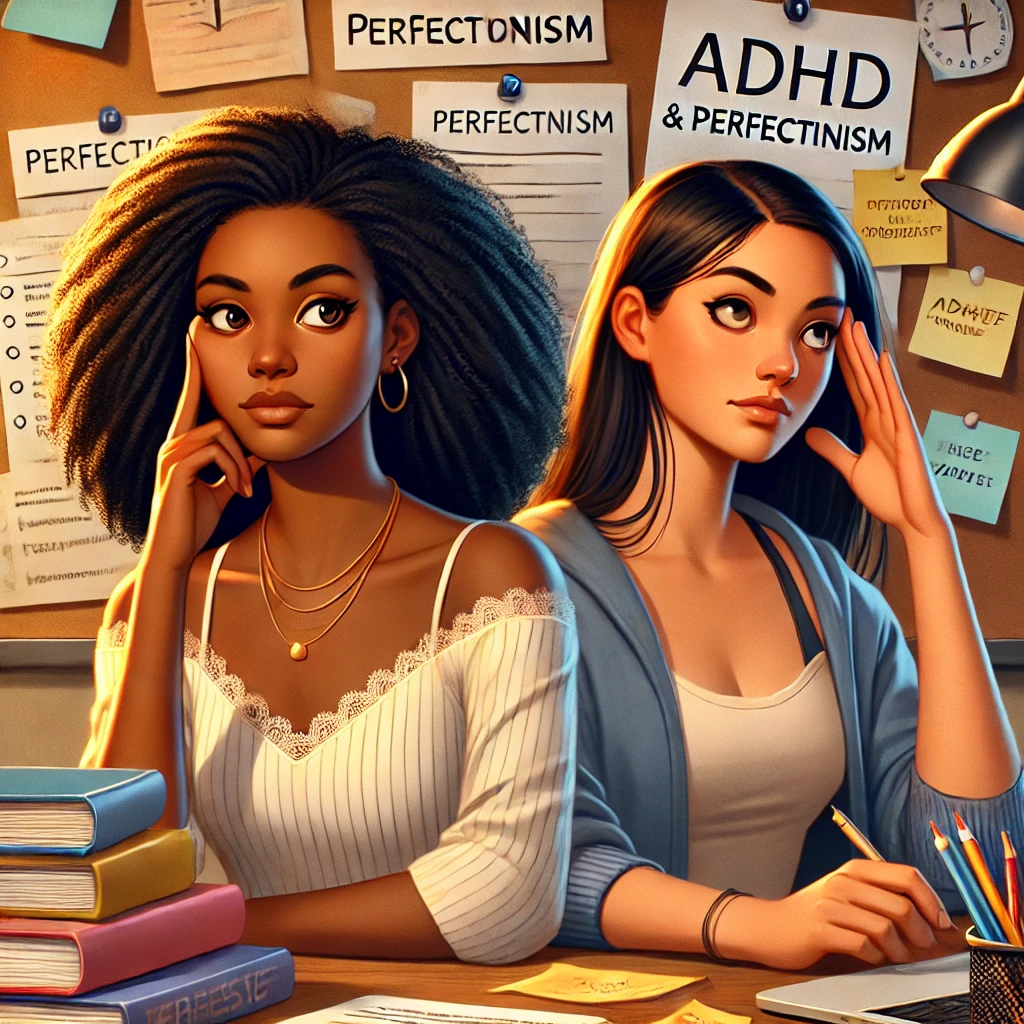Handling Rejection Sensitivity in Relationships: A Neurodivergent-Affirming Approach for ADHD Women
Rejection sensitivity in relationships can feel overwhelming for women with ADHD or other neurodivergent conditions. It’s not just about being “too sensitive.” Rejection Sensitive Dysphoria (RSD) involves intense emotional reactions to perceived or real rejection or criticism, which can profoundly affect your relationships.
The goal in managing RSD is to understand yourself better, feel more connected and safe in your relationships that are worthwhile, and help others understand you, too.

1. Challenge Negative Thoughts about your partner's Intentions.
When handling rejection sensitivity in relationships, RSD can make neutral situations feel like rejection. These steps are for these situations. Learning to spot these thoughts and challenge them gently can reduce emotional intensity and foster personal growth for ADHD women.
Notice Harmful Thoughts
Take a moment to pause and acknowledge your feelings without judgment. Feeling hurt or anxious is okay, but try to separate those feelings from untrue assumptions.
Example: If your partner doesn't text you back, instead of thinking, “They’re ignoring me,” recognize, “I’m feeling anxious because they haven’t replied yet.”
Question Your Assumptions
Ask yourself whether your thoughts are based on facts or assumptions fueled by RSD.
Example: “Do I know they’re ignoring me, or could there be another reason?”
Consider Alternative Explanations
Allow space for other possible reasons behind their behavior.
Example: “Maybe they’re busy, or their phone battery died.”
Please give them the benefit of the doubt.
2. Communicate Effectively with Your Partner
Open communication is crucial in deepening your connection and avoiding misunderstandings that rejection sensitivity in relationships might amplify. For ADHD women, this step can help create clarity and emotional safety in relationships.
Address the Fear of Difficult Conversations
Avoiding uncomfortable conversations can create distance. Instead, share your feelings openly, even when it’s hard.
Example: “I’ve been feeling a bit distant and like to talk about it.”
Use “I” Statements
Speak from your own experience to avoid sounding accusatory.
Example: “I feel anxious when I don’t hear back from you” instead of “You always ignore me.”
Depending on your ability to express and know your feelings, this may or may not be difficult.
Be Specific
Focus on specific instances rather than broad patterns.
Example: “When you didn’t respond last night, I felt disconnected,” rather than, “You never reply.”
Express Your Needs Clearly
It’s okay to ask for what you need, such as reassurance or understanding.
Example: “It would help me if you could send a quick message when you’re too busy to talk.”
You may need extra work, but knowing your needs is okay. Therapy or journaling can help you focus on this.
Validate Your Partner’s Feelings
Acknowledge their perspective, even if you don’t fully agree with it.
Example: “I understand you’ve been busy and appreciate that.”
Practice Active Listening
When your partner responds, stay present and engaged to show you value their input. Try to repeat back the message they give you so they know you heard them.
Example: “So, you were busy and didn’t see my message?”
Effective communication fosters understanding and strengthens your emotional bond, crucial for handling rejection sensitivity in relationships.
3. Prevent Future Misunderstandings
Taking proactive steps to create mutual understanding can help avoid miscommunications before they happen, especially when handling rejection sensitivity in relationships as an ADHD woman.
Seek Clarification Before Jumping to Conclusions
If something bothers you, try and ask questions rather than assuming the worst.
Example: “I’m a bit confused about what you said earlier. Could you clarify what you meant?”
Discuss RSD Openly
Helping your partner understand RSD can reduce frustration and improve communication.
Example: “Sometimes I overthink when I don’t get a quick response, and it makes me feel rejected.”
⊗Here is a page for your Partner on how to support you
Establish Communication Guidelines
Setting clear expectations around communication can help both partners feel more secure.
Example: “Would you agree to check in if a text goes unanswered for over a day.”

Signal When You’re Overwhelmed
Develop a signal or phrase that lets your partner know when you need space to process emotions.
Example: “If I say ‘I need a minute,’ it means I’m feeling overwhelmed, and I need time to regroup.”
These strategies create a foundation of mutual understanding, helping you and your partner navigate potential RSD triggers with compassion while handling rejection sensitivity in relationships.
4. Seek Professional Support
There’s no shame in seeking therapy—it’s a proactive way to build stronger, healthier relationships, especially if handling rejection sensitivity in relationships is a recurring challenge. Just make sure it's with a neurodivergent-affirming therapist.
Consider Individual Therapy
Therapy can help you explore the roots of your RSD and develop more effective coping strategies.
Benefit: Individual therapy allows you to learn to create safety, practice self-compassion, and help support yourself with emotional regulation strategies.
Couples Therapy Can Improve Communication
Working with a therapist as a couple can help you better navigate the challenges RSD may bring to your relationship.
Benefit: Couples therapy offers a safe space to address disagreements and improve communication, guided by a trained therapist.
If rejection sensitivity is causing significant strain in your relationship, professional support can offer personal growth and relational harmony.
Final Thoughts on Rejection Sensitivity in Relationships
Handling rejection sensitivity in relationships, especially as an ADHD woman, requires understanding, both from yourself and your partner. The goal isn’t to understand your feelings but to learn how to navigate them with kindness and compassion.
If RSD is affecting your relationship, reach out to a therapist or counselor for support—you deserve help in managing these challenges, and working through them can lead to stronger, healthier connections.
Other Pages about RSD on this Website
⊗Do you love someone with RSD?





